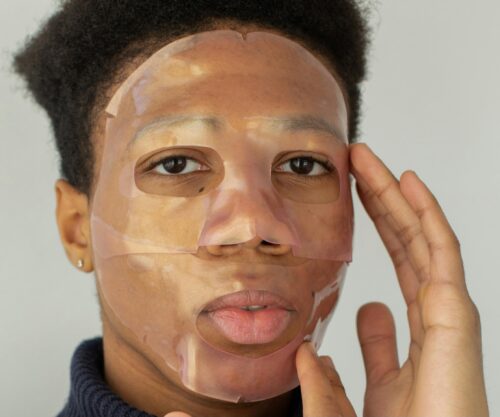
Hyperpigmentation is a common concern for many people, but it can be particularly challenging for those with black skin, especially during the winter months. It is a common condition that makes some areas of the skin darker than others. Extra melanin creates spots or patches that look brown, black, grey, red or pink. The areas are not painful or itchy, but they can make people self-conscious.
Pabi Kgadima a qualified somatologist, skin care advocate and influencer says hyperpigmentation occurs “when the skin produces too much melanin, which is the pigment that gives black skin its color. There are several types of hyperpigmentation, including melasma, age spots, and post-inflammatory hyperpigmentation.
Melasma is usually caused by hormonal changes, such as those during pregnancy or menopause, while age spots are a result of prolonged sun exposure. Post-inflammatory hyperpigmentation, on the other hand, is caused by an injury or inflammation to the skin, such as acne or a cut,” says Pabi.
Hyperpigmentation is also known to appear differently on people with darker skin tones than on those with lighter skin tones.
In people with darker skin tones, hyperpigmentation may appear as darker patches or spots that are more pronounced and persistent than on lighter skin tones. This is because people with darker skin have more melanocytes, the cells that produce melanin, and their melanocytes produce more melanin than those in lighter skin tones.
The winter season can affect hyperpigmentation on darker skin in a number of ways.
Pabi says this is due to the cold dry air and low humidity levels which causes the skin to become dry and flaky, which therefore makes the hyperpigmentation look more noticeable.
“This is because dry skin can cause hyperpigmented areas to become more textured, making them appear darker and more pronounced,” says Pabi while speaking to BONA.
How to treat hyperpigmentation in black skin during winter
Pabi suggest the following:
These ingredients work by inhibiting melanin production or exfoliating the skin to remove dead skin cells and reveal brighter, more even-toned skin.
- Vitamin C: This antioxidant helps to brighten the skin and reduce the appearance of dark spots by inhibiting the production of melanin.
- Alpha hydroxy acids (AHAs): AHAs, such as glycolic acid, lactic acid, and mandelic acid, exfoliate the skin to remove dead skin cells and reveal brighter, more even toned skin.
- Retinoids: Retinoids, such as retinol or prescription-strength tretinoin, promote cell turnover and help to reduce the appearance of dark spots by encouraging the growth of new, healthy skin cells.
- Niacinamide: This ingredient helps to inhibit melanin production and reduce the appearance of dark spots while also improving the skin’s barrier function to prevent moisture loss.
Lifestyle changes that can help prevent hyperpigmentation on black skin during winter:
- Wear protective clothing: During the winter months, wearing protective clothing, such as hats, scarves, and long sleeves, can help to minimise sun exposure and prevent hyperpigmentation.
- Use a broad-spectrum sunscreen: Applying a broad-spectrum sunscreen with an SPF of at least 30 can help to protect the skin from the harmful effects of UV rays and prevent hyperpigmentation.
- Stay hydrated: Drinking plenty of water and staying hydrated can help to keep the skin moisturised and prevent dryness, which can exacerbate hyperpigmentation.
- Use gentle skincare products: Using gentle, fragrance-free skincare products can help to prevent irritation and inflammation, which can trigger hyperpigmentation.
- Eat a healthy diet: Eating a healthy diet rich in fruits, vegetables, and antioxidants can help to promote healthy skin and prevent hyperpigmentation.
- Manage stress: Managing stress through activities such as exercise, meditation, or yoga can help to reduce inflammation and prevent hyperpigmentation.
- Avoid picking at the skin: Picking at hyperpigmented areas can exacerbate the condition and lead to scarring or further darkening of the skin.
Hyperpigmentation on black skin can be a challenging condition to manage, especially during the winter months when cold temperatures and dry air can exacerbate the condition. However, with the right skincare routine, lifestyle changes, and potentially medical treatments, it is possible to minimise the appearance of hyperpigmentation and maintain healthy skin. It is also important to consult with a dermatologist to develop a personalised treatment plan that is tailored to your specific needs and skin type.
Also see: Skin hydration hacks for winter




